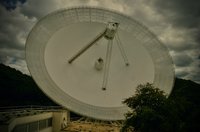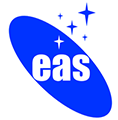The first AG summer school in Bonn
The first summer school of the German Astronomical Society (AG) took place from the 24th to the 26th of June 2022. The meeting was aimed at young astronomers, including bachelor students up to PostDocs, and provided a great opportunity to learn and meet fellow astronomers. This time 25 astronomers from 12 nations, with an average age of 27, participated.
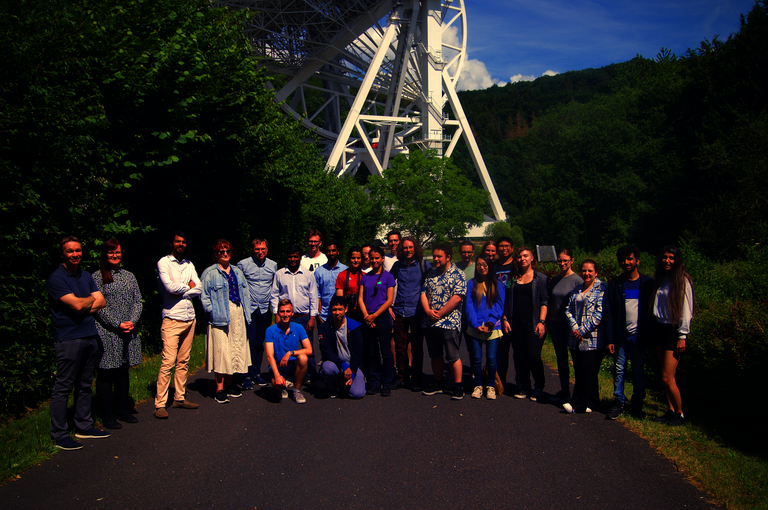
On Friday things were kicked-off with a joined meal at the Brauhaus Bönnsch. While enjoying typical german food and good beer, all participants got to meet each other for the first time in a great atmosphere.
Saturday morning the group left for Effelsberg by bus driving through the beautiful Eifel. The telescope in Effelsberg is the largest steerable radio telescope in Europe with its 100 meter diameter dish. This impressive observatory is used to observe the universe in the millimetre wavelength range.
After a nice lunch outside the local program started. The tour of the telescope, conducted by the tour guides Dr. Alexander Kraus and Dr. Norbert Junkes, started in the control room, where a telescope-operator has to be present at all times. From this room the 3200 ton assembly is handled.
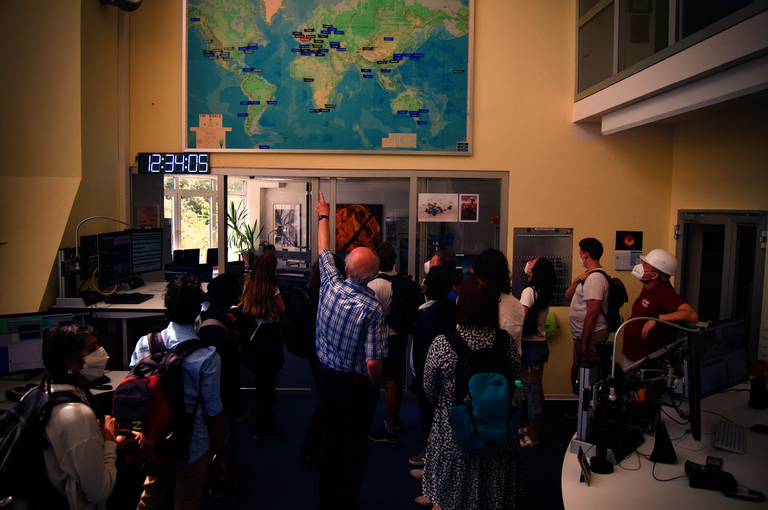
A few storeys below one could have a look at the azimuth engine. The tracks which are right below the dish can be used to move the telescope with a precision of 0.3 mm.
The tour continued by going up the framework by elevator. The first platform hosts the engine for the elevation axis and the second one the actual axis. On the top everyone was rewarded with a beautiful view of the surrounding landscape and the local LOFAR-station.
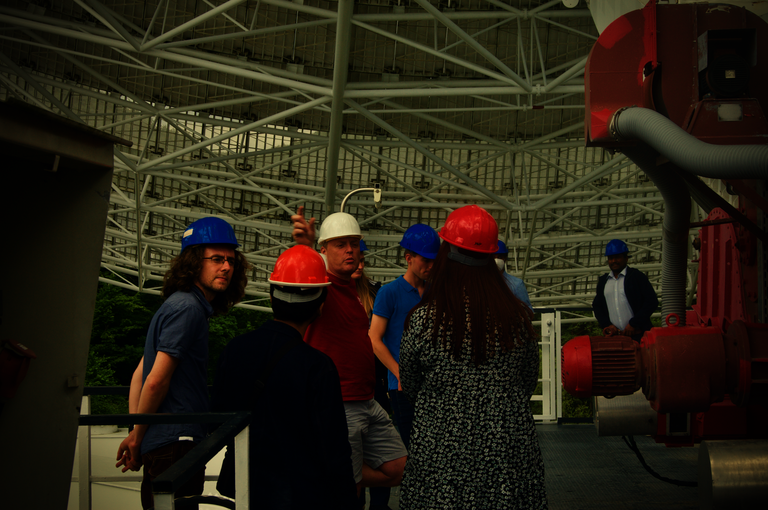
After conclusion of the tour, Prof. Dr. Michael Kramer, president of the AG and director of the Max Planck Institute for Radioastronomy (MPIfR), talked about the history of the institute and the science conducted there. For example, through the observations of pulsars one cannot just gain insight into the nature of these objects, but also learn about fundamental physics. These measurements can be used to test the theory of relativity and in future potentially detect gravitational waves. The telescope is also used to investigate active galactic nuclei and gas clouds.
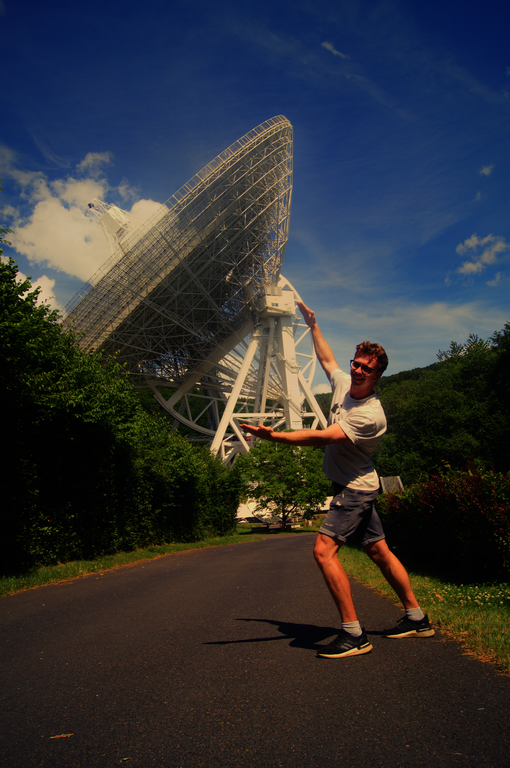
In the evening the group enjoyed dinner at a restaurant together.
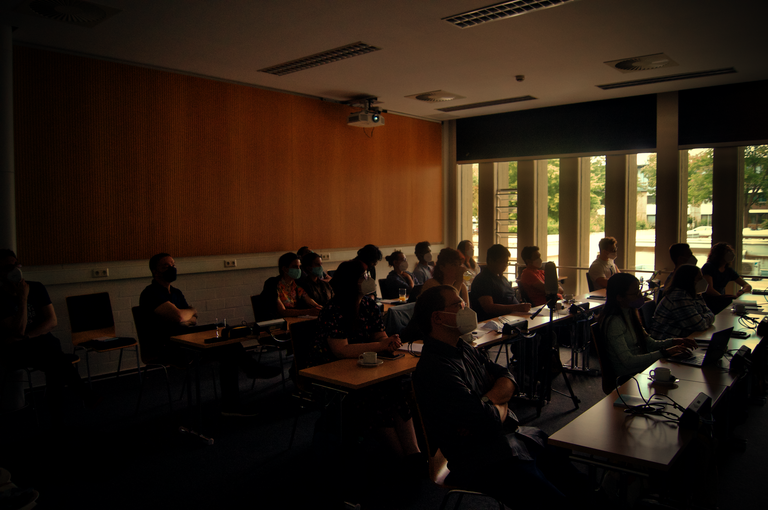
The next day the summer school was hosted by the MPIfR. The day started off with a premiere: the first Junge AG Colloquium in person this time even including two talks. First Albrecht Kamlah, a PhD student from Heidelberg, gave his talk on „direct N-body simulations of initially rotating star clusters“. His research shows that rotation plays a crucial role for the evolution of star clusters. Next followed Cormac Larkin, a soon to be PhD-student also in Heidelberg. He talked about „perspectives on massive stars in the local universe“. In his work he uses known reference stars to model stellar populations.
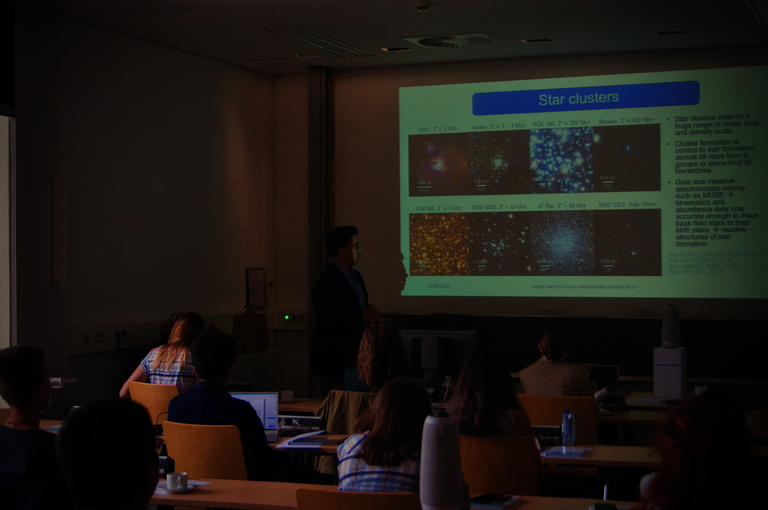
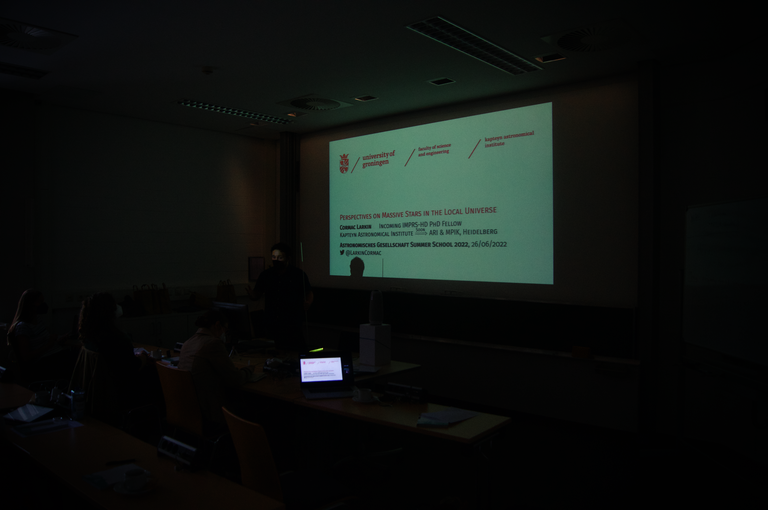
The summer school was concluded by the organizers giving an overview of astronomy in Germany and talking about the future of the Junge AG.
Special thanks goes out to Dr. Markus Hundertmark and Dr. Renate Hubele for the superb organization, the local helpers Kathrin Grunthal and Marlon Bause, and to all participants making the summer school a great success. We are looking forward to future events!
Text and Photos by: Steven Hämmerich

